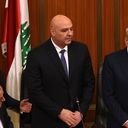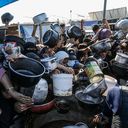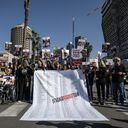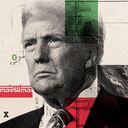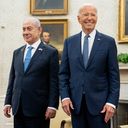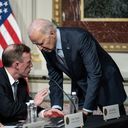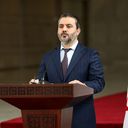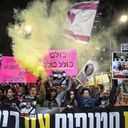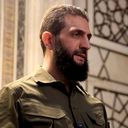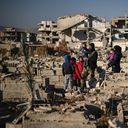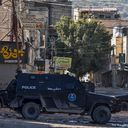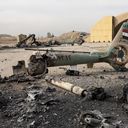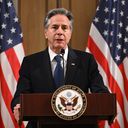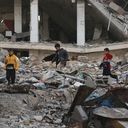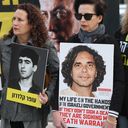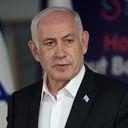Lebanon elects new president after more than two years of political crisis
The Lebanese Parliament on Thursday elected the commander of the Lebanese armed forces Gen. Joseph Aoun as the country's next president.
Why it matters: Lebanon hasn't had a president for more than two years while the country's leaders tried to reach consensus on a candidate, which has exacerbated Lebanon's deep political and economic crisis.
- Aoun is an ally of the U.S. and has worked closely with the U.S. military for years.
- His election is a big achievement for the Biden administration, which privately lobbied for Aoun and has been pushing to use the weakening of Hezbollah in the war with Israel to break the logjam around the election of a new Lebanese president.
Driving the news: Aoun needed at least 86 votes from lawmakers in order to bypass a law that requires military officers to wait two years before running for office.
- In the first round of voting on Thursday morning, Aoun didn't get enough votes because several lawmakers affiliated with the Shiite Amal party and Hezbollah abstained.
- Aoun then met with the lawmakers and assured them that the next Lebanese government would have enough representation for the Shia community.
- Shortly after, a second vote was held with Aoun winning 99 votes out of 128 lawmakers.
Behind the scenes: The U.S., France and Saudi Arabia worked together in recent weeks to push for the election of a new Lebanese president.
- The three countries didn't publicly call for Auon's election but in private they supported his candidacy and claimed he was the only consensus candidate, sources with knowledge of the discussion said.
- Earlier this week, Biden's envoy Amos Hochstein met in Beirut with Aoun as well as key political leaders and dozens of Lebanese lawmakers to discuss the presidential election.
- The breakthrough came on Wednesday when Suleiman Frangieh, the candidate supported by Hezbollah, dropped out of the race and announced his support for Aoun.
The big picture: U.S. officials said the end of the deadlock can be attributed largely to Hezbollah and its Iranian backers being in an extremely weak position after suffering loses in the war with Israel and the Assad regime being toppled in Syria.
- Hezbollah had to abandon its veto over any candidate who is not Frangieh and the Iranians didn't interfere in the process, a U.S. official said.
- Aoun's election is likely to increase Western support for the Lebanese government and the Lebanese armed forces redeployed to southern Lebanon as part of the ceasefire deal with Israel.
- Aoun's victory would also likely increase U.S. and European pressure on Israel to conclude its withdrawal from southern Lebanon by the end of the initial 60-day ceasefire period, which will end in three weeks.
What they're saying: Israeli foreign minister Gideon Saar congratulated Lebanon for the election of a new president.
- "I hope that this choice will contribute towards stability, a better future for Lebanon and its people and to good neighborly relations," he said.
In a speech after his election, Aoun said Lebanon under his presidency will be committed to the rule of law and that he will make sure the right to carry weapons will be exclusive to the state.
- He said Lebanon will respect the ceasefire agreement with Israel and its other international obligations.
- Aoun said Lebanon's foreign policy will be of "positive neutrality" and that the country will work to improve relations with the West and the East based on "mutual respect and on maintaining Lebanon's sovereignty and independent decision."
